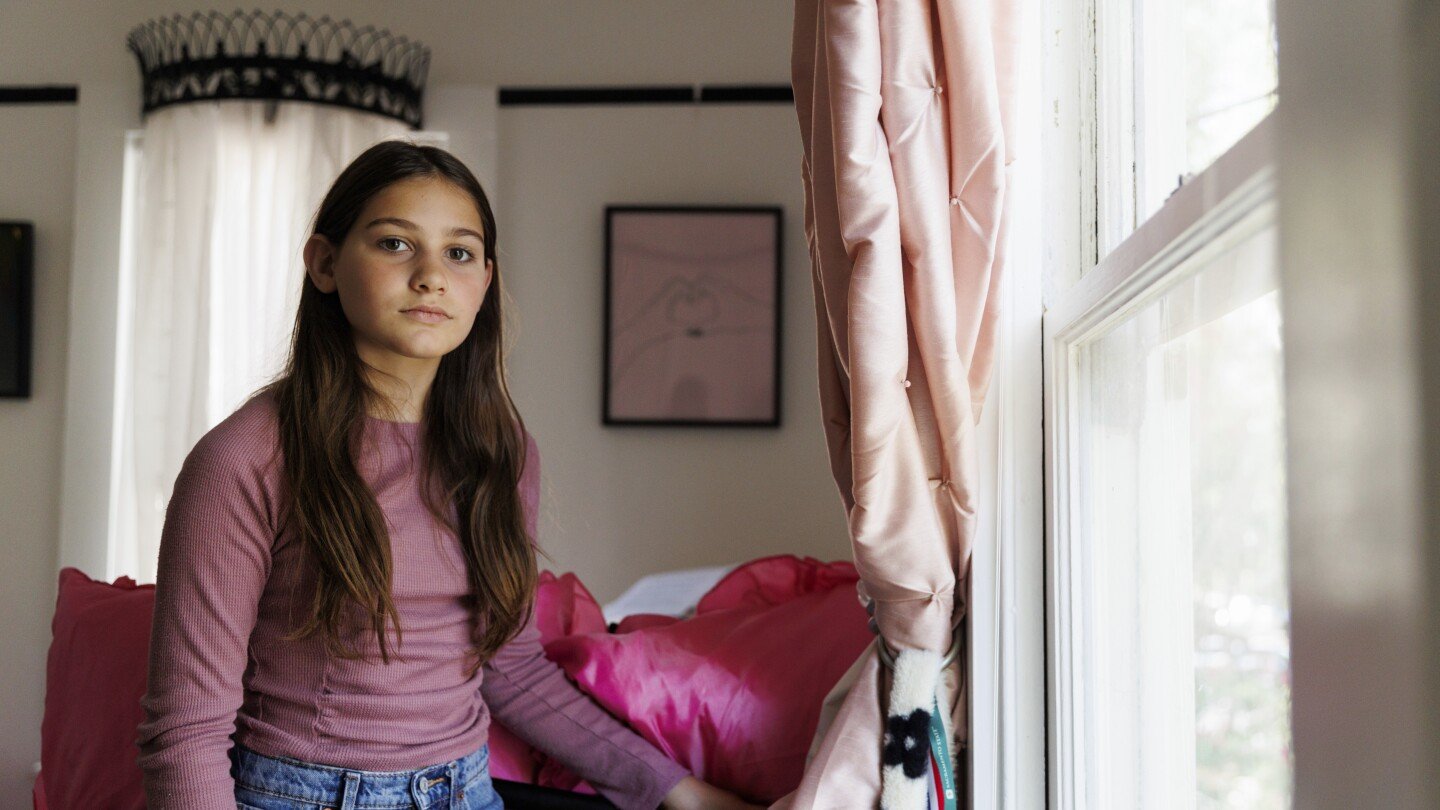When she was in fifth grade, Scarlett Goddard Strahan started to worry about getting wrinkles.
By the time she turned 10, Scarlett and her friends were spending hours on TikTok and YouTube watching influencers tout products for achieving today’s beauty aesthetic: a dewy, “glowy,” flawless complexion. Scarlett developed an elaborate skin care routine with facial cleansers, mists, hydrating masks and moisturizers.
One night, Scarlett’s skin began to burn intensely and erupted in blisters. Heavy use of adult-strength products had wreaked havoc on her skin. Months later, patches of tiny bumps remain on Scarlett’s face, and her cheeks turn red in the sun.
“I didn’t want to get wrinkles and look old,” says Scarlett, who recently turned 11. “If I had known my life would be so affected by this, I never would have put these things on my face.”
The skin care obsession offers a window into the role social media plays in the lives of today’s youth and how it shapes the ideals and insecurities of girls in particular. Girls are experiencing high levels of sadness and hopelessness. Whether social media exposure causes or simply correlates with mental health problems is up for debate. But to older teens and young adults, it’s clear: Extended time on social media has been bad for them, period.



Sure, and I won’t deny that there’s a problem to be addressed here. I just don’t think it’s the problem that’s being implied in the article. When I was in highschool, several classmates had severe skin problems caused by trying to use a homemade clorox paste to ‘erase’ their freckles. Another guy was hospitalized for trying to use ‘comet’ as a tooth whitening solution (my highschool also had a problem with cows from the neighboring pastures wandering in to eat the flowers in the planters, though, so maybe it’s not the best example to use here. They learned how to use the wheelchair buttons. The ranhers eventually dug a ditch to stop them, which didn’t stop the cows wandering but did provide a place for people to go and have sex during school hours. Yeah, it was a ‘sex ditch’ highschool. What was I talking about.)
My point is that children are idiots, have always been idiots and are always going to be idiots. I love them, and they’re much smarter than most people give them credit for, but still. The real issue here isn’t that they’re finding new and different ways in which to be idiots, but that parents aren’t willing (or more likely, aren’t able due to time, money or social pressures) to provide enough oversight to prevent said childhood dumbassery. The underlaying issues here are way more complex than ‘tiktok bad’, and those are what need addressing. Confiscating smartphones from kids (as some people here seem almost gleeful to advocate) is just a socially convenient way to not take responsibility for actually parenting your children, and denies them a vital tool for interacting with the modern world. It does far more harm than good. A fifteen minute conversation about the strategies tiktok uses to influence them will have more positive benefit on their lives than taking away their phones ever, ever would.
Great points.
Vaping is another example. Despite being aged restricted, kids still get their hands on vapes.